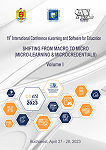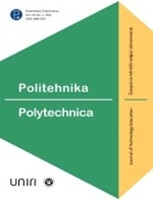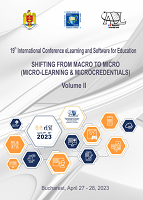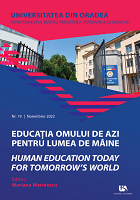Author(s): Ancuta Florentina Gheorghe,Antoniu Ștefan,Triinu Jesmin,Jaanus Terasmaa,Manuel Caeiro-Rodríguez,Hariklia Tsalapatas,Carlos Vaz De Carvalho,Gabriela Măntescu / Language(s): English
Issue: 01/2023
The shift from traditional teaching methods to technology-enhanced learning environments has opened new opportunities to improve student skills, especially their critical thinking, decisionmaking and collaborative abilities. Consolidation of student skills occurs in environments that enable project-based learning and problem-based learning approaches, brainstorming, collaborative work, debates, co-creation, and other methods to explore active learning. It has become necessary to give students more freedom to learn by supporting them to document and explore various perspectives, to learn to question assumptions, assess ideas, identify strengths and weaknesses, analyse alternatives, and reach conclusions. These processes enable students to participate actively in work-like processes, and to gain experience on how to participate in discussions, how to contribute with ideas that reflect their own creativity, how to learn from feedback, and how to reach consensus and experience complex decision-making environments. In this context, the authors present the rational of the “Virtual presence in higher education hybrid-learning delivery” Project, the functionalities of the VIE platform and discuss the main lessons learnt from the piloting of the VIE digital platform that was designed to foster collaborative work and nurture decision-making capabilities. The platform enabled students to participate in joint online activities, share ideas, brainstorm and build solutions based on the feedback received from their colleagues. The piloting activities were carried out in Estonia, Greece, Spain, Portugal, and Romania. A questionnaire has been distributed to collect feedback on the VIE activities. The majority of participants, regardless of the country they belonged to, selected the following skills as the most important: digital skills, collaboration, critical thinking and flexibility.
More...




